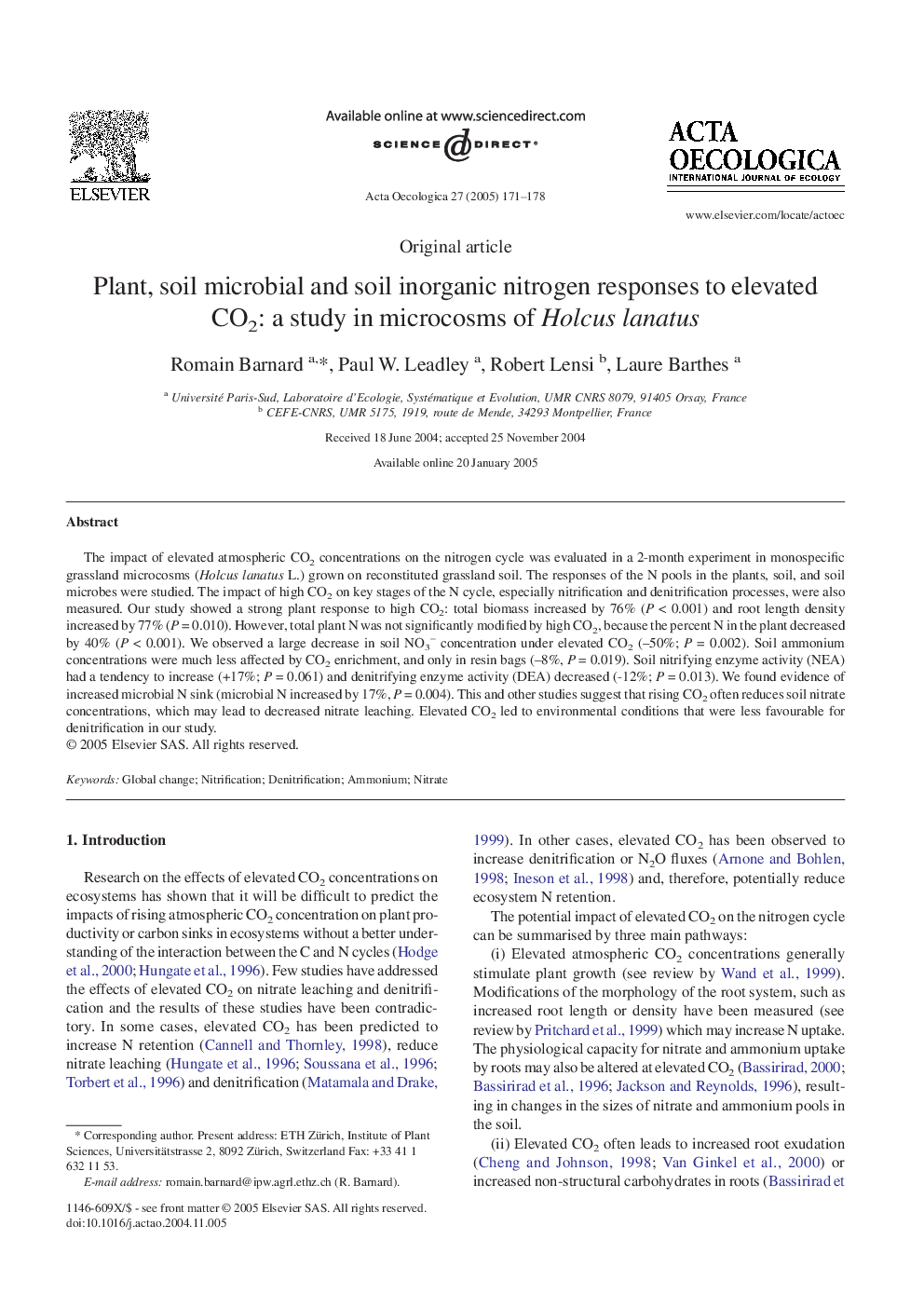| Article ID | Journal | Published Year | Pages | File Type |
|---|---|---|---|---|
| 9444889 | Acta Oecologica | 2005 | 8 Pages |
Abstract
The impact of elevated atmospheric CO2 concentrations on the nitrogen cycle was evaluated in a 2-month experiment in monospecific grassland microcosms (Holcus lanatus L.) grown on reconstituted grassland soil. The responses of the N pools in the plants, soil, and soil microbes were studied. The impact of high CO2 on key stages of the N cycle, especially nitrification and denitrification processes, were also measured. Our study showed a strong plant response to high CO2: total biomass increased by 76% (P < 0.001) and root length density increased by 77% (P = 0.010). However, total plant N was not significantly modified by high CO2, because the percent N in the plant decreased by 40% (P < 0.001). We observed a large decrease in soil NO3- concentration under elevated CO2 (-50%; P = 0.002). Soil ammonium concentrations were much less affected by CO2 enrichment, and only in resin bags (-8%, P = 0.019). Soil nitrifying enzyme activity (NEA) had a tendency to increase (+17%; P = 0.061) and denitrifying enzyme activity (DEA) decreased (-12%; P = 0.013). We found evidence of increased microbial N sink (microbial N increased by 17%, P = 0.004). This and other studies suggest that rising CO2 often reduces soil nitrate concentrations, which may lead to decreased nitrate leaching. Elevated CO2 led to environmental conditions that were less favourable for denitrification in our study.
Related Topics
Life Sciences
Agricultural and Biological Sciences
Ecology, Evolution, Behavior and Systematics
Authors
Romain Barnard, Paul W. Leadley, Robert Lensi, Laure Barthes,
